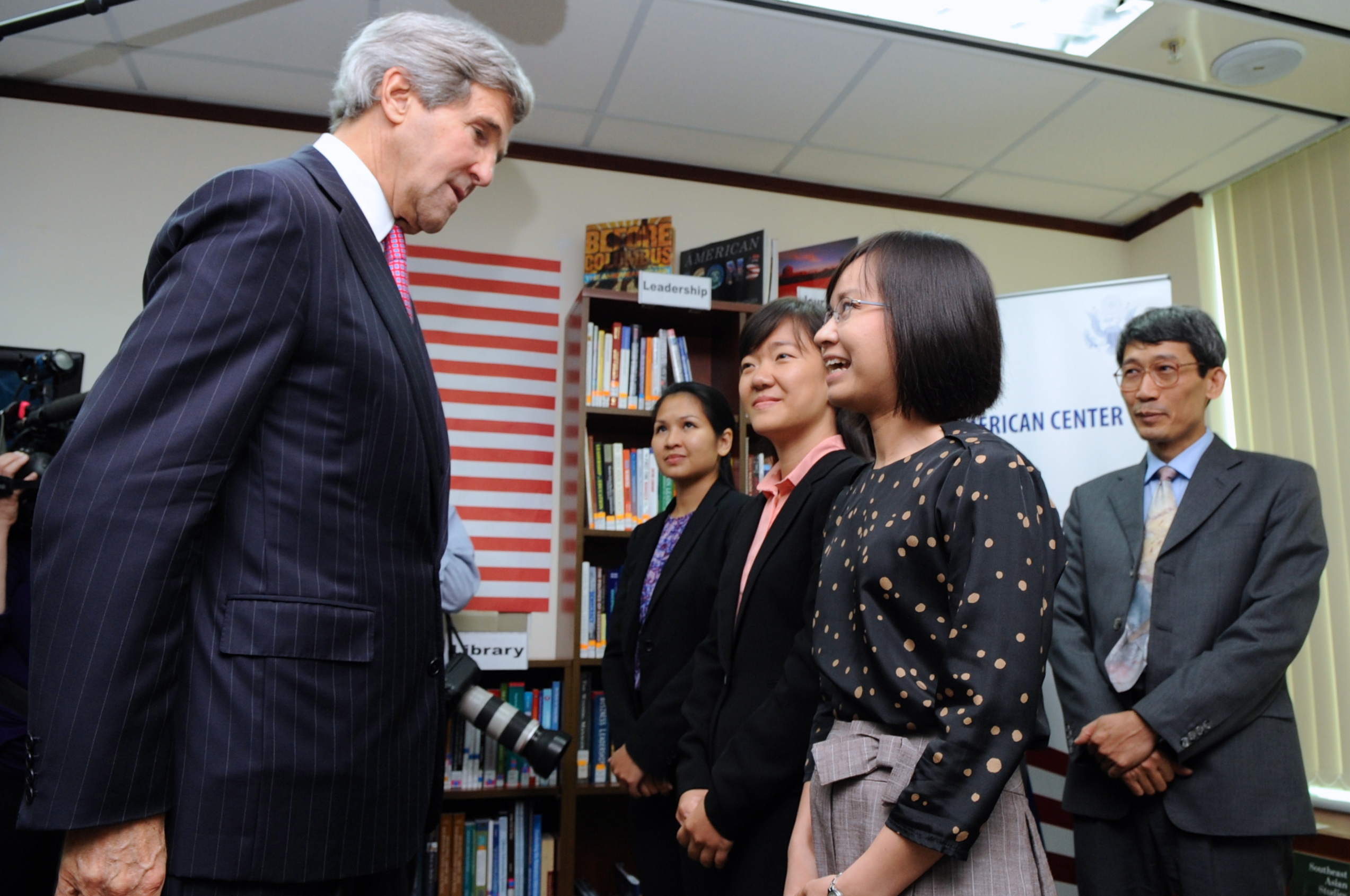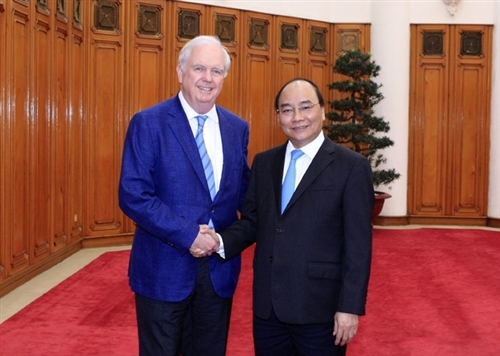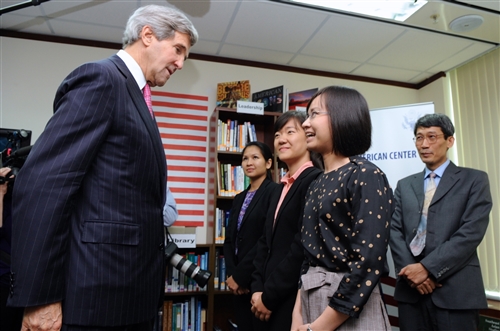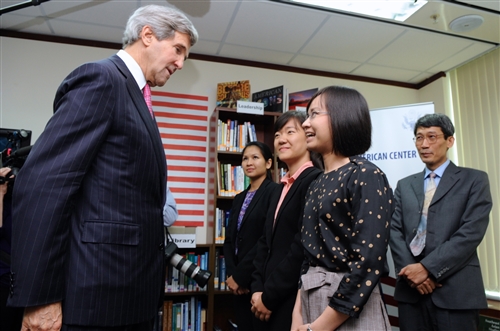June 17, 2014
By Ash Center Communications
Source: http://www.hks.harvard.edu
Last December's trip through Southeast Asia was the first time that John Kerry had traveled to Vietnam in nearly a decade—and marked his first visit to the country as secretary of state. For Kerry, the trip in many ways was an affirmation of his work in the U.S. Senate towards normalizing U.S. relations with Vietnam. The history of the U.S. rapprochement with Vietnam in many ways tracks with the development of the Ash Center for Democratic Governance and Innovation's work on Vietnam, in particular, with the work of the Vietnam Program and its flagship initiative, the Fulbright Economics and Teaching Program (FETP). The origins of the Vietnam Program and FETP can be traced back to the 1990s when Kerry worked with his Senate colleague John McCain to normalize diplomatic relations with Vietnam.
However, at Harvard Kennedy School (HKS), the groundwork was being laid for the reestablishment of diplomatic ties years before when Thomas Vallely, the founding director of the Vietnam Program, along with Dwight Perkins, Harold Hitchings Burbank Professor of Political Economy, and Vietnam Program Economist David Dapice, visited the country in the 1980s to examine economic issues. Vallely and Kerry came to know each other as politically active young veterans prominent in anti-war circles in Massachusetts in the early 1970s. Vallely served in the Marines in Danang while Kerry patrolled the coasts and rivers of Vietnam as a Navy lieutenant during the war.

Photo: Secretary of State John Kerry meets with FETP faculty and participants December 2013. Photo by Department of State
After earning an MPA from the Kennedy School in 1983, and a political career in the Massachusetts State House, Vallely travelled to Vietnam in 1985 for the first time since the war. It wasn't long before Vallely returned to HKS, this time as director of the nascent Vietnam Program, and began working to sow the seeds of rapprochement between Washington and Hanoi. After nearly two decades of normalized diplomatic relations, it can be easy to forget how controversial rapprochement was at the time. Many veterans groups were adamantly opposed to normalization, arguing that the Hanoi government was still holding American prisoners of war. Kerry and McCain recognized that first they had to tackle the POW issue head on before moving forward on normalization, so they worked to establish the Senate Select Committee on POW-MIA Affairs. The Committee, with the cooperation of the Vietnamese government, conducted an exhaustive investigation that ultimately helped to lay the political groundwork for full normalization of ties.
Kerry also played an active role in efforts to establish academic exchanges between the U.S. and Vietnam. Beginning with the Fulbright Program, which in part provides assistance for foreign scholars to study in the United States, academic ties were eventually forged between the two countries. In most countries, however, the Fulbright Program is administered locally by the U.S. embassy, but without formal diplomatic ties or an embassy in Vietnam at the time, the State Department approached Harvard and the Vietnam Program about running the Fulbright Program there.
"Through the Fulbright Program, Harvard was at the vanguard of Track II diplomatic initiatives between the U.S. and Vietnam and found itself well positioned to usher in the next phase of the academic cooperation between the two countries—ultimately leading to the creation of the FETP," said current Harvard Vietnam Program Director Ben Wilkinson.
Related Articles

Fulbright University Vietnam to be 1st Vietnamese non-profit private university

Vietnamese PM approves in principle TUIV’s establishment of Fulbright University Vietnam (FUV)


